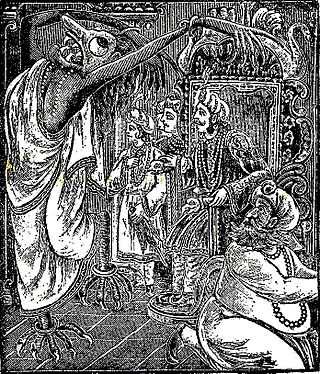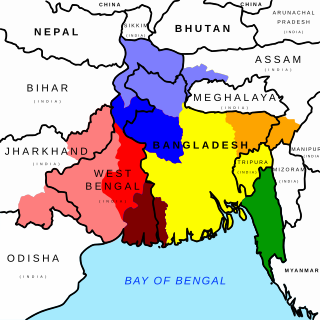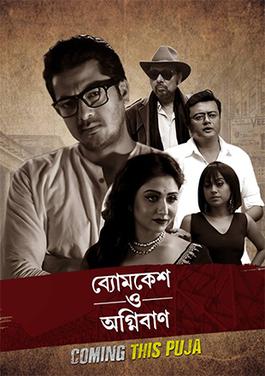
As-salamu alaykum, also written salamun alaykum and typically rendered in English as salam alaykum, is a greeting in Arabic that means 'Peace be upon you'. The salām has become a religious salutation for Muslims worldwide when greeting each other, though its use as a greeting predates Islam, and is also common among Arabic speakers of other religions.

A given name is the part of a personal name that identifies a person, potentially with a middle name as well, and differentiates that person from the other members of a group who have a common surname. The term given name refers to a name usually bestowed at or close to the time of birth, usually by the parents of the newborn. A Christian name is the first name which is given at baptism, in Christian custom.

The Baul are a group of mystic minstrels of mixed elements of Sufism and Vaishnavism from different parts of Bangladesh and the neighboring Indian states of West Bengal, Tripura and Assam's Barak Valley and Meghalaya. Bauls constitute both a syncretic religious sect of troubadours and a musical tradition. Bauls are a very heterogeneous group, with many sects, but their membership mainly consists of Vaishnava Hindus and Sufi Muslims. They can often be identified by their distinctive clothes and musical instruments. Lalon Shah is regarded as the most celebrated Baul saint in history.

Munshi is a Persian word, originally used for a contractor, writer, or secretary, and later used in Mughal India for native language teachers, teachers of various subjects, especially administrative principles, religious texts, science, and philosophy and were also secretaries and translators employed by Europeans.
Das is a common last name in South Asia, among adherents of Hinduism and Sikhism, as well as those who converted to Islam or Christianity. It is a derived from the Sanskrit word Dasa meaning servant, devotee, or votary. "Das" may be inferred to be one who has surrendered to God. The surname is often used by those in the Vaishnav community.

A kati roll is a street-food dish originating from Kolkata, West Bengal, India. In its original form, it is a skewer-roasted kebab wrapped in a paratha bread, although over the years many variants have evolved all of which now go under the generic name of kati roll. Today, mostly any wrap containing a filling enfolded in an Indian flatbread (roti) is called a kati roll. In native Bengali, the word kati roughly translates to 'stick', referring to how they were originally made. In Bengal though, the delicacy is simply known as roll. Kati rolls normally contain coriander chutney, egg, and chicken but the types may vary. Internationally, specifically in parts of Canada and the United States, the kathi roll has become a popular fast food found in Indian take-out restaurants.
Dutta, also spelled Datta, is an Indian family name. Its variation is Dutt.
Aravind is a common Indian masculine name meaning lotus. The name is of Hindu origin. Its variants include Arvind, Aravinda, Aravindan, and Aurobindo (Bengali: অরবিন্দ).
The Halam community are various tribes native to the state of Tripura in India. The name Halam was coined by the Tipra Maharaja. As per their oral tradition they called themselves "Riam", which literally means "Human being". And lyrically they also call themselves "Riamrai, Chepvon, Reivon, Longvon etc.". The Halam are further divided into 12 sub-tribes, namely Sakachep, Chorei, Molsom, Hrangkhol, Kaipeng, Kalai, Ranglong, Thangachep, Bongcher, Korbwng, Dab and Rupini.
Izzatullah, also spelled Ezzatullah or Ezatullah, is a common masculine Muslim given name, formed from the elements Izzat and Allah, originally of Arabic origin and meaning 'majesty', 'honor' and 'might' of Allah.

Ghosts are an important and integral part of the folklore of the socio-cultural fabric of the geographical and ethno-linguistic region of Bengal which presently consists of Bangladesh and the Indian states of West Bengal and Tripura. Bengali folktales and Bengali cultural identity are intertwined in such a way that ghosts depicted reflect the culture it sets in. Fairy tales, both old and new, often use the concept of ghosts. References to ghosts are often found in modern-day Bengali literature, cinema, radio and television media. There are also alleged haunted sites in the region. The common word for ghosts in Bengali is bhoot or bhut. This word has an alternative meaning: 'past' in Bengali. Also, the word Pret is used in Bengali to mean ghost. In Bengal, ghosts are believed to be the unsatisfied spirits of human beings who cannot find peace after death or the souls of people who died in unnatural or abnormal circumstances like murders, suicides or accidents. Non-human animals can also turn into ghosts after their death. But they are often associated with good luck and wealth in Bangladesh.

Personal names in Bengali-speaking countries consist of one or several given names and a surname. The given is usually gender-specific. A name is usually cited in the "Western order" of "given name, surname", though the practise is neither adopted from the West nor universal. Personal names may depend generally on the person's religion and also have origins from other languages like Arabic, Persian, Sanskrit and Pali, but they are used and pronounced as according to the native Bengali language.
Jatin is a given name of Indian origin, meaning "The Auspicious One".

Handa and Bhonda is a 2010 Indian Bengali-language drama film directed by Subhankar Chattopadhyay, starring Mithun Chakraborty, Aritra Dutta Banik, Biswajit Chakraborty and Supriya Devi in lead roles.
Jan or jaan is name of Persian origin meaning for 'soul' or 'life', also used as a diminutive suffix attached to names and expressing intimacy, with a meaning roughly equivalent to "darling, dear".
Samaddar, also spelled Samadder, is a Bengali Hindu surname, commonly found among the Bengalis of the Indian state of West Bengal and the country of Bangladesh. They are considered Rarhi Brahmins of the Kashyapa gotra or can be any castes or sub-castes due to historic adaptation to various professions during their migration from Rarh regions to various new settlements. The common language spoken by them is Bengali.
Aritra Dutta Banik is a Bengali film actor who has made several on-screen appearances since 2003. He made his debut in the Bengali megaserial Tithir Atithi, which was aired on ETV Bangla from 2003 to 2009. He drew public attention for the first time during Mithun Chakraborty's dance reality show, Dance Bangla Dance Junior (2007), in which, he anchored the show along with Tathoi Deb. Since then, he has appeared in numerous Bengali films.

Byomkesh O Agniban (2017) is a Bengali-language Detective thriller film directed by Anjan Dutt and produced by Kaustav Roy and Ashok Dhanuka. The movie features Jisshu Sengupta as the sleuth Byomkesh Bakshi. This is based on compilation of the stories Agniban and Upasanghar written by Sharadindu Bandyopadhyay. This is the sixth installment of Byomkesh series by Anjan Dutt, serving as a sequel to Byomkesh O Chiriyakhana.

Bangla Pokkho is a pro-Bengali advocacy organisation that focuses on rights for Bengalis in the Republic of India. Based on Bengali nationalism, it works against the enforcing of the Hindustani language in West Bengal. It is organised along linguistic lines and is aimed at protecting Bengali culture. It uses the state slogan "Joy Bangla".
Inaya is a Bengali version of the Urdu name Inayat, meaning “care, concern.”









